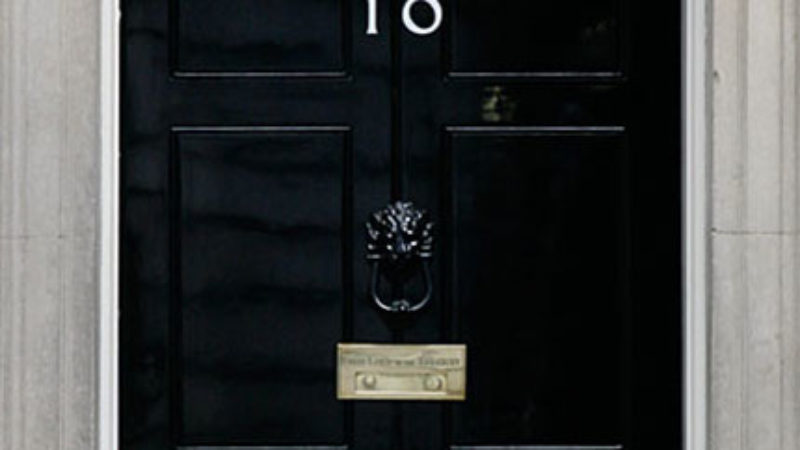
Polly Toynbee writes today that it would be a mistake for the next Labour leader to ditch the party’s most recent policies.

In her view, the party lost the election not because of its policies but because of its reputation and leader.
If that were the case, the party could win the next election with similar policies – so long as it addressed its other weaknesses.
But can you separate the policies from Labour’s weaknesses? That is, did Labour lose because of its policies or despite them?
A recent GQR poll for the TUC looks at these questions – but appears to give contradictory answers.
The poll unmistakably shows that the gap in perceived economic competence was crucial. It was the biggest factor helping the Tories (the top two reasons for voting Tory were that the economy was recovering, and the deficit was being cut); and hurting Labour (the top reason for not voting Labour was that they couldn’t be trusted with the economy).
And only 1 in 4 respondents think Labour had a good track record in government, compared with 1 in 2 for the Tories.
Popular policies
But, it also suggests that many of Labour’s policies were popular.
Labour made the NHS a major part of its campaign. It was the issue that respondents – including people Labour lost from 2010 to 2015: ‘Lost Labour’ – say most determined their vote, out of 13 tested. The poll also found Labour had a 57pt lead over the Tories on the NHS among Lost Labour.
And Labour’s economic policies seem to have been popular.
By comfortable majorities, voters – and particularly Lost Labour – say Labour should prioritise people in poverty over those on middle incomes; should be tougher on banks; should increase taxes on the rich; and should cut public spending more slowly.
The poll found strong support for each of the economically populist policies it tested: increasing the minimum wage and pensions, banning zero-hour contracts, cracking down on tax evasion by the rich, and building more houses.
There’s even a clear lead for predistributive economics: increasing low wages rather than reducing inequality through the tax system.
We also know from other polls – like this by ICM for the High Pay Centre – that Ukip voters are typically fiscally left-wing, suggesting a way for Labour to win back many of them.
So this interpretation suggests Labour could do well with an economically populist position. Essentially, it says Miliband’s instincts were electorally popular; he just failed to be heard or to convince people he could deliver.
Sum of the parts
But you could quite reasonably look at the poll and conclude it shows that those policies made it impossible for Labour to shake off the reputation for economic incompetence.
The poll shows that Labour was already seen as on the side of working people: much more than the Tories. So it looks like many people liked those policies and were aware of Labour’s position – yet still didn’t vote Labour.
It also found more people think economic growth comes from deficit reduction and lower taxes rather than from investment or helping working people: a more conservative position than support for the other policies suggest.
That said, I don’t think you can really answer the question from the data: in fact I think it can’t really be tested with polls like these.
It’s likely that any policy platform that combined these popular economic positions would be savaged as economically irresponsible – particularly if it was presented by Labour with its current lack of economic trust.
Ukip demonstrate this. They have a collection of policies that are individually hugely popular (including banning immigrants with HIV from treatment).
Yet nearly 3 in 4 say they either didn’t particularly consider voting Ukip or didn’t consider it at all.
It didn’t take a political genius to have predicted that, combined, Ukip’s socially regressive policies would be less popular than the sum of their parts. A collection of such policies brings a toxic reputation.
Returning to Labour, you could try to test this in a poll that put together alternative policy positions, threw attack lines at them and saw where people ended up. You’d need to take into account who they’re associated with: perversely the Tories would probably be seen as much more plausible now if they presented redistributive policies than Labour would be.
But it’s still an artificial test that doesn’t really model the real world. There would continue to be a difference between the effect of attacks you tested in a poll and the cumulative effect of being battered from all directions for supposed economic incompetence.
The problem for Labour isn’t toxicity, it’s credibility. There’s no problem with people thinking Labour’s heart is in the right place – the problem is with demonstrating that Labour is capable of delivering on this goodwill.
So there’s a danger that all you get from testing policy positions like these is a list of policies that further encourage Labour to show they’re led by well-meaning people.
But sometimes – and particularly in the absence of credibility – popular policy + popular policy = unpopular position.
By focusing on individually popular policies, Toynbee is ignoring the challenge Labour faces in convincing people they can deliver those policies.
This is why what I take from the GQR poll is that the priority for Labour over the next few years shouldn’t be about finding policies that are popular now. It should be about re-building its credibility so that it once again has permission to offer popular policies in time for 2020.




More from LabourList
‘Organise 2026 – We want to lead a Young Labour that listens – that provides for members in every town, village and city’
Jury trial reforms: Full list of Labour MPs calling for plans to be scrapped
‘The OBR and fiscal rules are fuelling the uncertainty they were supposed to end’